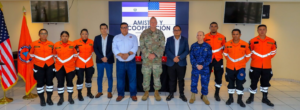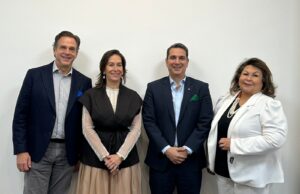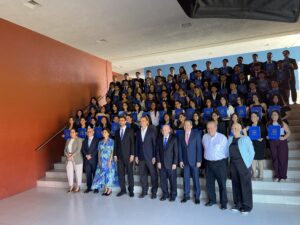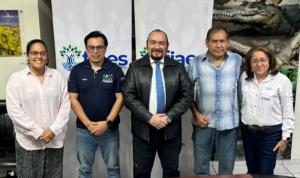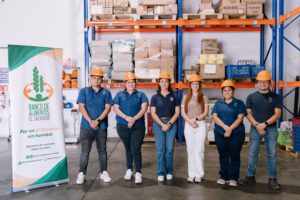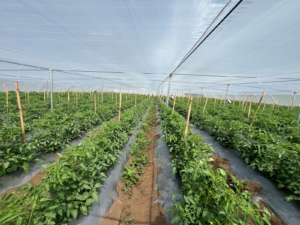
The Fundación Empresarial para la Acción Social (FUNDEMAS) has launched the first episode of a series of podcasts aimed at educating about sustainability, with success stories, projects and experiences of productive actors committed to environmentally friendly good practices. The Bank of Central America and Holcim El Salvador participated in this first edition, sharing their achievements in their sustainability policies.
The podcast was created as a space for FUNDEMAS, in alliance with Verdes en la calle, El Salvador’s first radio program in favor of the environment, in the run-up to the twelfth edition of Sustainability and CSR Week.
The program Verdes en la calle, hosted by David Castillo, featured Ingrid de Hernández, assistant manager for sustainability at Banco de América Central, and Melissa Montalvo, head of corporate affairs at Holcim El Salvador, who shared their experiences on sustainability, based on the question: What does sustainability mean?
BAC Neto Positivo
“For BAC, sustainability has been the core business strategy for more than a decade. We have included the vision of sustainability in our business strategy, relating it to the entire banking business, to give rise to our motto BAC Neto Positivo. This is our reason for being and we cannot separate it. It is about strengthening and promoting the economic, social and environmental dimension of the banking business, based on sustainability”, said Ingrid de Hernández.

She explained that, at BAC, we work to reduce and eliminate negative impacts, and simultaneously strengthen positive impacts. She added, economic value is maximized, to make banking transparent, to do sustainable business with the different banking products and services, with programs to strengthen SMEs or foundations.
According to Ingrid de Hernández, operations are based on three objectives in the environmental dimension: a) carbon positive waste bank; b) transform the portfolio into net positive; promote circular economy and sustainable mobility. “The digitalization of banking is a priority and the goal to be achieved”, she said.
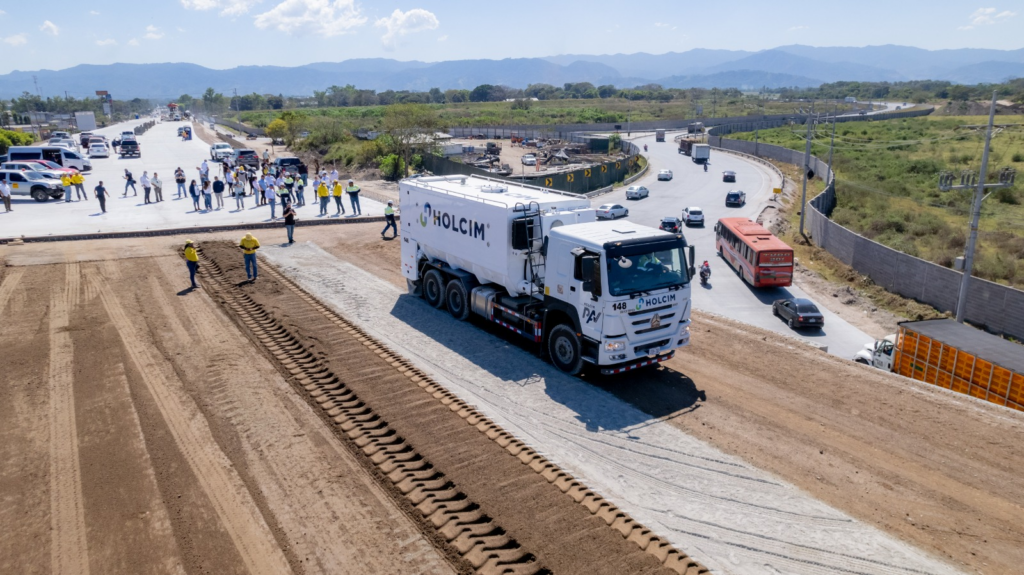
Decarbonization and circular economy
Melissa Montalvo, head of corporate affairs at Holcim El Salvador, shared that sustainability for the corporation went from philanthropy to the generation of programs focused on sustainable communities, to evolve into a global company committed to achieving net positive emissions.
“We are based on the mega trends in the construction sector, where the demand for housing and modern infrastructure is increasing and requires different and sustainable solutions that are environmentally friendly. We start from the fact that the construction sector has a footprint that has an impact on the environment, where 30% comes from the building materials and 70% comes from the buildings in use. This means that we cannot make individual changes, but we must join forces to reduce our carbon footprint, reduce greenhouse gases, and lower the CO2 that have a negative impact on climate change, with the purpose of becoming zero-emission organizations, building green cities with intelligent infrastructure”, he reiterated.
Decarbonizing Holcim’s operations, promoting the circular economy in construction, and optimizing the inputs used in construction is part of the company’s strategy in its various areas of operation. He reported that more than 21% of the solar energy generated at Holcim is used to operate production plants, resulting in savings of 1.7 million fossil fuels. In the same vein, he added, there are solar lights in the eight concrete plants to avoid consuming fossil fuel energy. Holcim has also managed to reduce CO2 emissions by 560 tons through the use of electric mixers.
FUNDEMAS urged more companies to participate in Sustainability Week, considered the largest sustainability networking event in El Salvador, which will be held this year from october 7 to 10, with lectures, specialty workshops, best practices fairs, and field visits.


